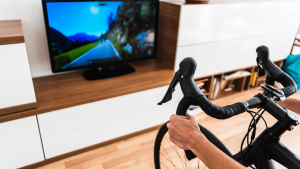No products in the cart.
Whatcha Got? Physical Self Awareness
Each day, we wake up to a new opportunity. With every sunrise, we have the chance to make the day what we, as individuals, are willing to create. Much of our daily accomplishments are based off of our mood, task lists, emotions, friends and family, and our motivation. As athletes, our drive is based off of our event or personal goals, competitive nature and what our training plan or coach has on tap for us that day. Too often I see athletes view their training plan as something on their “to do” list and not as a means of improving fitness and health. I challenge you to increase your self awareness in two key areas each morning and, with each workout, look for the increases in your performances and overall feel. We will focus on the hardest thing first and begin with the mental and emotional side of training. I had a very close friend and mentor who was known for saying, “It is 90% mental and 10% physical.” I could not agree more with this, and see it over and over in field tests, races and workouts for many athletes (Yep, your power meters don’t lie!)

Before each workout, take an inventory of where you are at mentally and emotionally. What are the status of your levels of stress, anxiety, anger or fear? You might be able to catch this early and alter your mood to improve your workout. If you are not able to reverse your mood, it is important to determine what the workout is, the level of stress this will place on mental and emotional state and what your ability is to complete the task. At this point, a decision should be made on what you will do. For some, a workout is a stress relief. For others, it is a stressor. Our physical self awareness is a more tangible assessment and often easier to quantify. Training is a delicate balance of “over reaching” and recovering. When this falls out of balance is when we become susceptible to illness and injury. By creating a daily physical assessment of your body regarding injury or pains, as well as a state of fatigue, you can determine what may alter the final outcome of your workout. Many athletes go with the old High School football mentality of, “push through the pain.” Occasionally, this is the option to take. However, if the problem is addressed early and adequately, the issue can be more often than not resolved before it becomes a problem and derails your training — or before it risks your long term health and functionality. Now that you have assessed this data, what do you do with it? Here are some rules of thumb to consider and then modify for your needs. Remember, everyone functions differently.
- I’m feeling mentally and emotionally off
- Get into your warm up and see if your mood is altered
- If you see an improvement in your mood and you are reinvigorated, then go on with workout
- If not, consider modifying what your workout is
- Take a moment to get to a quiet place, sit down and take several deep breaths to clear your head.
- Stretch. Yes, this is physical, but it can help you to relax as well.
- Get into your warm up and see if your mood is altered
- I’m feeling physically off.
- Do you have a physical injury?
- See a doctor.
- Rest.
- Are muscles tight?
- Stretch a bit.
- Warm up and see if they begin to loosen.
- Have you been sick?
- Rest or take an easy recovery ride/walk dependent upon severity.
- Do you have a physical injury?
Taking stock of this information is not self-sabotaging — it can help you to stabilize your training. It is a way to learn how to take what your body will give you each day and nothing more. Ultimately, this can help reduce the risk of injury, improve the quality of key workouts and events, and improve your long term health. Look inward, listen to your body, and increase your longevity in sport! If you are unsure of how to best assess your levels of fitness and fatigue consider a Science of Speed coach. Our coaches have years of experience working with all levels of athletes and can help you learn what you are capable of! Learn more about our coaching options.




